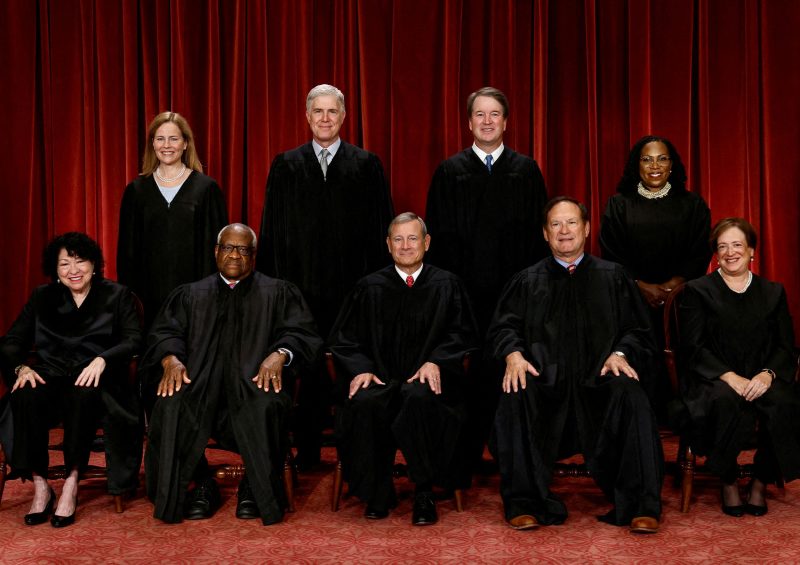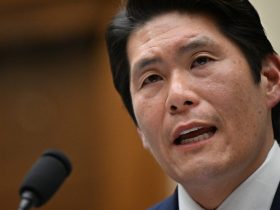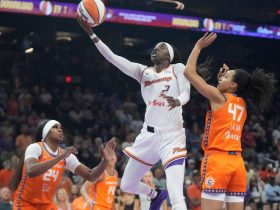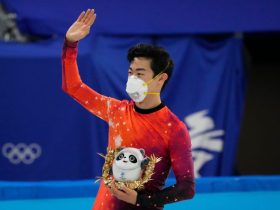None of the Supreme Court justices nor their spouses were implicated in the investigation of the leaked draft opinion that overturned Roe v. Wade, the court’s marshal said in a statement Friday — but unlike court employees who were questioned, they were not asked to sign affidavits.
A report about the eight-month leak investigation released on Thursday did not say whether the justices had been interviewed as part of the probe. Nor did a court spokesperson respond to questions on that topic on Thursday.
On Friday afternoon, however, after speculation that the omission meant the nine justices had not been included in the probe, the court issued a clarification.
“During the course of the investigation, I spoke with each of the Justices, several on multiple occasions,” said Marshal Gail A. Curley. “The Justices actively cooperated in this iterative process, asking questions and answering mine. I followed up on all credible leads, none of which implicated the Justices or their spouses. On this basis, I did not believe that it was necessary to ask the Justices to sign sworn affidavits.”
In her 20-page report, Curley said it was not possible to find the person who leaked to Politico the draft opinion in Dobbs v. Jackson Women’s Health Organization, which the court’s conservative majority used to overturn the nearly 50-year-old precedent that guaranteed the right to abortion.
“No one confessed to publicly disclosing the document and none of the available forensic and other evidence provided a basis for identifying any individual as the source of the document,” Curley wrote. But she said it appeared the leak came from within: “While investigators and the Court’s IT experts cannot absolutely rule out a hack, the evidence to date reveals no suggestion of improper outside access.”
Curley said more than 80 people besides the nine justices had access to the draft opinion, and a total of 97 employees were eventually interviewed as part of the leak investigation — some more than once. But she concluded that “based on a preponderance of the evidence standard,” a relatively low legal standard meaning there is proof that something is probably true or not, it was impossible to identify the leaker.
Speculation about whether the justices were interviewed came from the the wording of the report: “The investigation focused on Court personnel — temporary (law clerks) and permanent employees — who had or may have had access to the draft opinion during the period from the initial circulation until the publication,” the report said.
Each employee was asked to sign an affidavit “affirming that he or she did not disclose the Dobbs draft opinion to any person not employed by the Supreme Court” and to swear before a notary to the truth of that statement.
“Some individuals admitted to investigators that they told their spouse or partner about the draft Dobbs opinion and the vote count, in violation of the Court’s confidentiality rules,” the report said.
Curley’s report and statement on Thursday did not indicate that spouses — either of the employees or the justices — had been interviewed. Two have drawn particular attention.
Justice Clarence Thomas’s wife Virginia “Ginni” Thomas is a well-placed conservative activist whose work has raised recusal questions for her husband. Last year, she was called for an interview with the congressional committee investigating the riot at the Capitol on Jan. 6, 2021.
Ginni Thomas was an avid supporter of Donald Trump, and committee investigators obtained emails between her and lawyer John Eastman, who had advanced the theory that Vice President Mike Pence could block the congressional certification of Joe Biden’s electoral college win.
She also repeatedly pressed White House Chief of Staff Mark Meadows to find ways to challenge the election results, according to messages she sent to him weeks after the election.
Justice Samuel A. Alito Jr., who wrote the leaked opinion in Dobbs, has denied an allegation from a former antiabortion activist that Alito or his wife Martha-Ann disclosed to conservative donors the outcome of a pending 2014 case regarding contraceptives and religious rights. The activist made the allegation to the New York Times.
Alito said the claim that conservative donors ‘were told the outcome of the decision in the Hobby Lobby case, or the authorship of the opinion of the Court, by me or my wife is completely false.” He was referring to Hobby Lobby v. Burwell, which concerned the contraceptive mandate in the Affordable Care Act.








